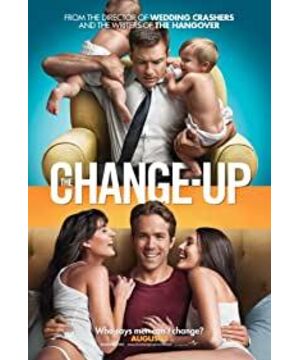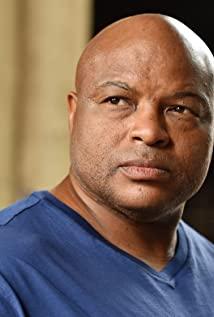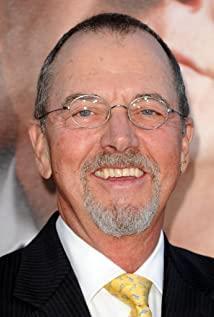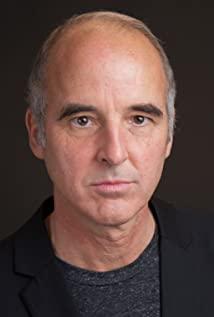However, in the omnipotent movie world, changing and exchanging bodies is a small case, just like this "Two Men Become Wrong", just urinating at the goddess of the fountain and saying in unison, "I thought of him life” can easily transform into each other.
Although "The Hangover" is actually difficult to match, there is no doubt that there are screenwriters Jon Lucas and Scott Moore's original ideas and creativity ("The Hangover 2" is completely "The Hangover". A remake, which has lost the freshness of the plot). The two men's new work "Two Men Become Wrong" is very clever. Although it has reached the standard of Hollywood comedy films, it has nothing to do Can not be called far-fetched.
According to my experience watching movies, this kind of transformation movie is not uncommon. There are mainly two types: one is one-way transformation, that is, the protagonist becomes himself in a certain time and space, such as "Flying Over the Future" starring Tom Hanks "Star Dreams" starring Andy Lau is that the protagonist grows up instantly, although the body is an adult, but the heart is still a teenage child. The other is two-way transformation, that is, the protagonist's soul enters someone else's body due to some incomprehensible karma, just like this "Two Men Become Wrong". However, the two have one thing in common: that is, after experiencing the life of another self or someone else, the protagonist finally understands, and after returning to the original state, his heart has improved beyond the previous one.
Analysis of the reasons for the two-way transformation, nothing more than the following:
First, technological factors. Technology is the primary productive force, which of course also includes film production. Technology not only improves film production and projection technology, but also continuously expands the theme of the film, such as the face swap technology in "Face Change", the brain transplant technology in "Super Secret", etc. So as to achieve the effect of technical support.
The second is the magic element. I am used to seeing the ever-changing three hairs of Sun Dasheng and the invariable mask in "Greek in Disguise", and then look at the magical skull in "Little Dad and Big Son" and the mysterious lucky in "Freak Friday" Cookies are taken for granted, in the magical world, anything is possible.
The third is the gods and monsters. As long as they put their love on the gods and monsters, the screenwriters can make up plots and imaginative ways, and the gods and monsters will naturally not be absent in the transformation movie. For example, the devil in "Men and Women," and the goddess of the fountain in "Two Men and Women".
Fourth, accidents. Under the influence of fantasy stories such as "Harry Potter", "The Chronicles of Narnia" and "Pirates of the Caribbean", the current audience's ability to accept is actually very strong. For some movies with sci-fi elements, it is not like " The Discovery Channel is too probing, so I am also noncommittal about the plots of some accidents causing body swaps. For example, the thunder in South Korea's "Crazy Body Swap", the fall into the water in Japan's "Transfer", and the car accident in Singapore's "My Days in the Government Department" can all become factors for body swapping.
In addition to the above four categories, there are also some transformation movies that even eliminate the factors that cause transformation consequences. For example, the two protagonists in "Women and Men Become Wrong" woke up the next day and found that the two had swapped bodies for no reason.
In addition to the ever-changing reasons for swapping bodies, the types of transformations are also colorful: father-son swaps ("Like Son Like Dad"), mother-daughter swaps ("Secret"), couples swaps ("If I Were You") ), exchange of lovers ("Dating with an Enemy"), exchange of men and women ("Becoming a Spice Girl"), exchange of old and young ("The Love of Heaven"), exchange of enemies ("Changing Faces"), and even exchange of humans and animals ( "Happy Ghost on the Wrong Body") ... it can be said to be all-encompassing.
Although there are various kinds of movies with two-way transformation, they are always the same, and the plot construction has a certain convergence. Take "Two Men Become Wrong" as an example, and make a little analysis.
One is to have two protagonists in a state of conflict. Although Dave and Mitch were friends, Dave looked down on Mitch, believing that he was nothing but snacking and masturbating, so he didn't notify Mitch on the wedding anniversary.
The second is that both protagonists are in a predicament and cannot be sustained without change. Both Dave and Mitch's lives are unsatisfactory. Dave is disturbed by trivial family affairs; although Mitch is free and comfortable, he has no progress in his career (as an actor, he is reduced to making a tertiary film), and he has no breakthrough in love. (There is no fixed girlfriend), the communication between father and son is blocked.
The third is a wonderful body exchange through some reason. Due to the magical power of the goddess of the fountain, I won't go into details.
Fourth, after the body swap, the protagonist is in a dilemma that the role changes and cannot adapt. Mitch messes up the first partnership meeting, and Dave's family faces disintegration. Dave is overwhelmed by the tertiary set and Mitch's pregnant lover.
The fifth is that the protagonist finally regains his identity and learns what he lacks. After transformation, Dave realized the importance of family, learned how to treat his family well, and learned to enjoy life; while Mitch learned to be patient and motivated, and to adjust the relationship with his father and Dave.
Therefore, transformation movies have interesting plots and special gimmicks, and are more suitable for entertainment spirit. However, because various types of transformations have basically been involved, there is no room for substantial innovation. Therefore, to make such excellent films, screenwriters are even more needed. Innovate and bring forth the new, and exert a higher innovation ability.
View more about The Change-Up reviews











